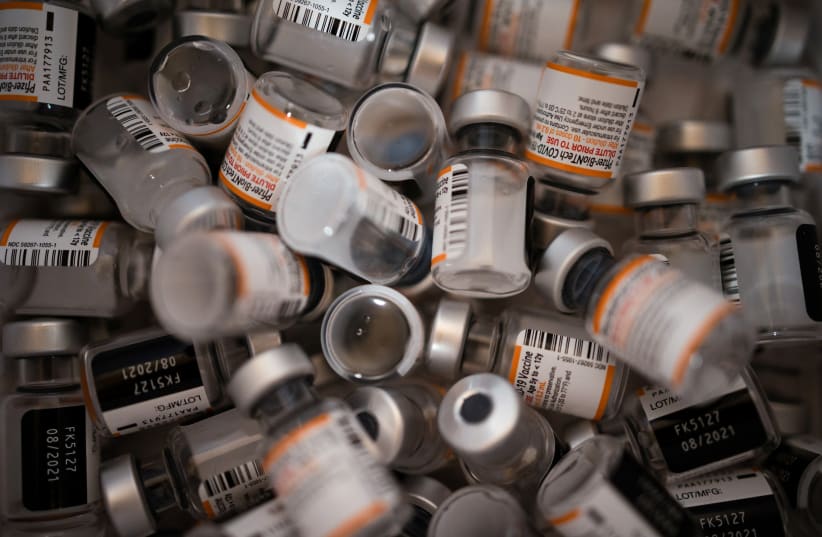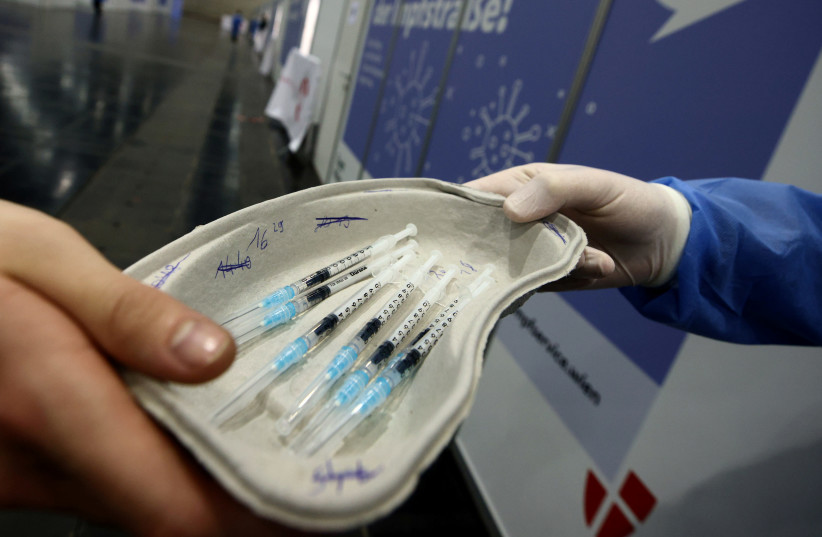Israel is examining the feasibility of setting up its own internal vaccine manufacturing facility – and on Monday called for proposals for how to get it done.
The country is completely dependent on imported vaccines and hence “the ability to develop, manufacture and license vaccines in Israel is of the utmost importance in order to confront familiar pathogens and/or unfamiliar pathogens that might severely harm the Israeli public health and economy,” an Approach to Market (AtM) released Monday by the Finance Ministry explained.
COVID-19 accelerated the country’s desire to explore other alternatives that may be less expensive, ensuring a steady supply of vaccines for dealing with the current epidemic as well as potential future epidemics.
Although no final official numbers were ever released, it is understood that Israel paid a premium price for the millions of Pfizer vaccines that it purchased to inoculate the majority of the population. In addition, to receive those vaccines, Israel had to agree to exchange inoculation and infection data with the pharmaceutical company.
The AtM was disseminated by the ministry on behalf of the Prime Minister’s Office, the National Economic Council and the Health, Economy and Defense ministries, based on a decision made by the government on July 11, shortly after Prime Minister Naftali Bennett took office.
During his tenure, former prime minister Benjamin Netanyahu also called for a vaccine facility to be established but no progress was made toward its establishment. He also touted a joint effort to establish a vaccine research and development facility in Israel together with Pfizer, but the company told The Jerusalem Post that this was just “political speak” and not something being practically considered.
The partners are “seeking information from the public for the purpose of examining, commercially and practically, a possible framework for establishing a vaccine manufacturing facility in Israel that shall have independent abilities for manufacturing vaccines on a routine basis, as well as the capability to manufacture vaccines for future pandemics.”
Upon conclusion of the process, the hope is that there will be a better understanding of the best model for Israel among several alternatives, as well as regarding obstacles that could arise and how to confront them.
Responses are due by February 17, 2022.
Where the facility will be established is also still to be determined.
Yeroham Local Council head Tal Ohana has been lobbying to establish a vaccine production facility in her city since before the pandemic and was in talks with the Israel Institute for Biological Research about setting up a plant to produce its vaccine if it is approved. However, she said that “currently it is not the same site, because we do not have the technology,” and that “I am not optimistic.”
An AtM is one step before a tender, meaning that it is an information-gathering tool and not a request for proposals. Only after the receipt of the responses to the AtM will the state consider its future actions.

